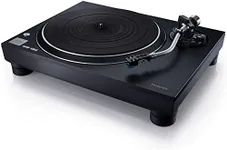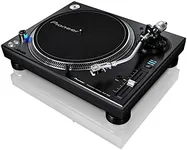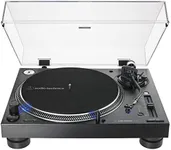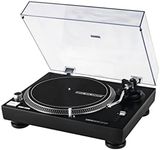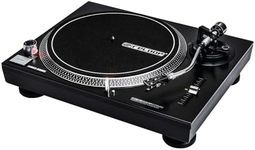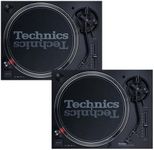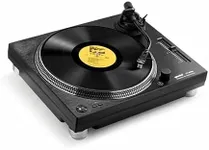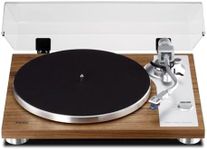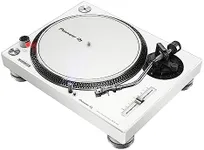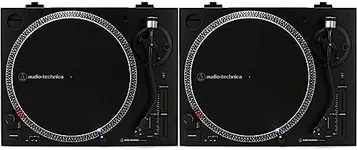Buying Guide for the Best Direct Drive Turntables
When choosing a direct-drive turntable, it's important to consider several key specifications to ensure you get the best fit for your needs. Direct-drive turntables are known for their durability, quick start-up times, and consistent speed, making them a popular choice for DJs and audiophiles alike. Understanding the key specs will help you make an informed decision and find a turntable that suits your listening or performance requirements.Motor TypeThe motor type in a direct-drive turntable is crucial because it directly affects the turntable's performance and reliability. Direct-drive motors are known for their high torque and quick start-up times, which are essential for DJing and scratching. For casual listening, a high-torque motor ensures consistent speed and minimal wow and flutter. If you plan to use the turntable for DJing, look for a high-torque motor. For home listening, a standard direct-drive motor will suffice.
PlatterThe platter is the rotating part of the turntable where the record sits. A heavier platter can help reduce vibrations and provide more stable playback, which is important for achieving high-quality sound. Platters can be made from various materials such as aluminum, acrylic, or glass. For DJs, a sturdy and well-balanced platter is essential for scratching and mixing. For audiophiles, a heavier platter made from high-quality materials will provide better sound quality.
TonearmThe tonearm holds the cartridge and stylus and guides them across the record. The design and quality of the tonearm can significantly impact sound quality and tracking accuracy. Tonearms can be straight or S-shaped, with each design offering different benefits. Straight tonearms are often preferred by DJs for better tracking during scratching, while S-shaped tonearms are favored by audiophiles for their superior sound quality. Consider your primary use when choosing the tonearm design.
Cartridge and StylusThe cartridge and stylus are responsible for reading the grooves on the record and converting them into audio signals. The quality of these components can greatly affect the sound quality. Cartridges can be either moving magnet (MM) or moving coil (MC), with MC cartridges generally offering better sound quality but at a higher cost. For DJs, a durable and replaceable stylus is important. For home listening, investing in a high-quality cartridge and stylus can enhance your listening experience.
Pitch ControlPitch control allows you to adjust the speed of the turntable, which is essential for beatmatching and mixing in DJing. The range of pitch control can vary, with some turntables offering a wide range for more precise adjustments. If you are a DJ, look for a turntable with a wide pitch control range and a precise slider. For casual listeners, pitch control is less critical but can still be a useful feature for fine-tuning playback speed.
Build QualityThe overall build quality of the turntable affects its durability and performance. A well-built turntable will have a solid chassis, good isolation feet to reduce vibrations, and high-quality components. For DJs, a robust build is essential to withstand the rigors of transport and heavy use. For home use, a well-constructed turntable will provide better sound quality and longevity. Look for turntables with a reputation for durability and high-quality materials.
ConnectivityConnectivity options determine how you can integrate the turntable with your audio system. Common options include RCA outputs, USB ports for digital recording, and sometimes Bluetooth connectivity. For DJs, having multiple output options can be useful for connecting to different sound systems. For home listeners, USB connectivity can be a great feature for digitizing vinyl records. Consider your setup and how you plan to use the turntable when evaluating connectivity options.
